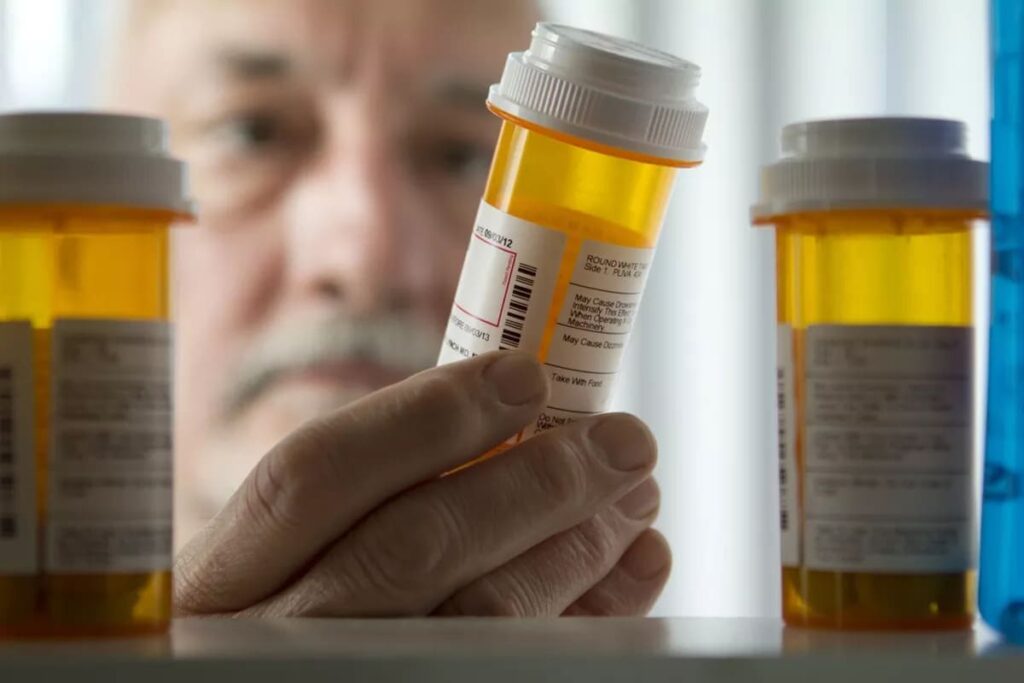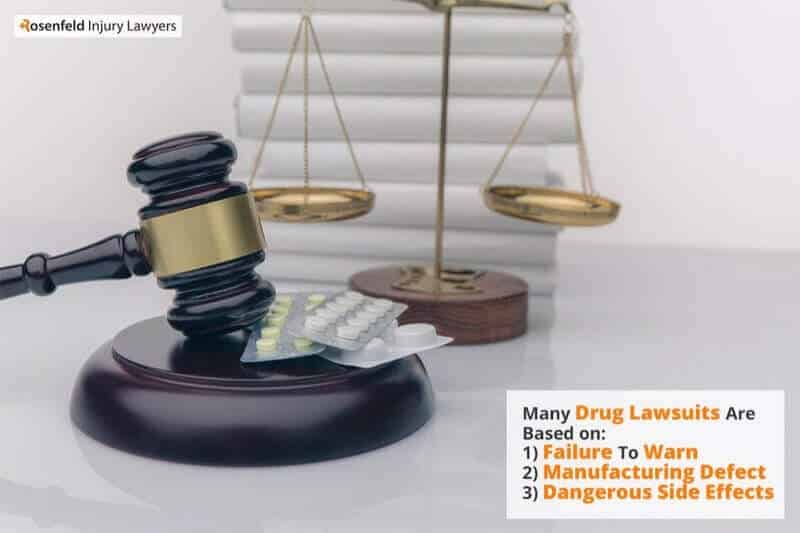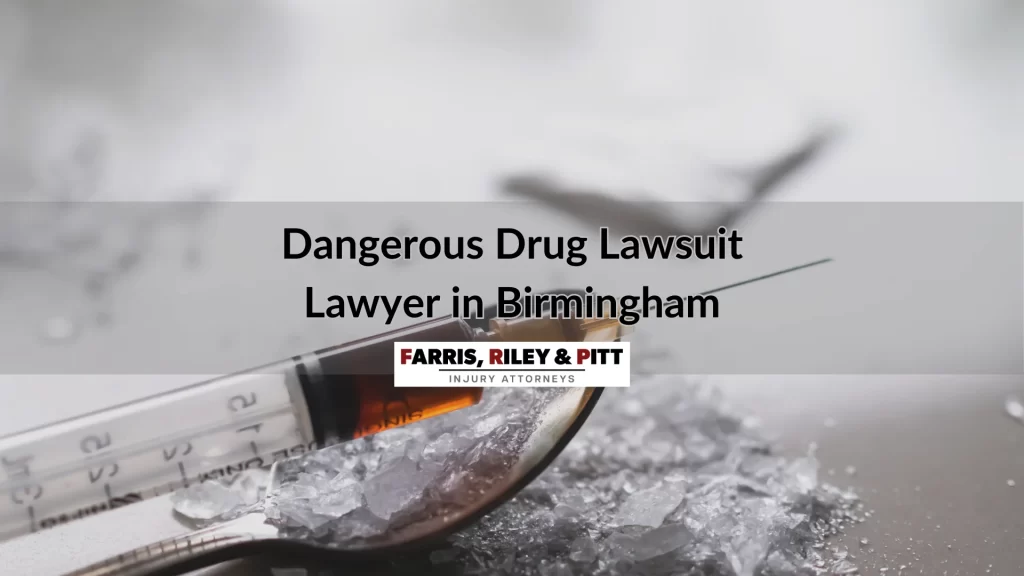Comprehending Your Legal Rights in a Dangerous Medication Legal Action
In the world of drugs, browsing the complexities of an unsafe medicine legal action can be discouraging. As people come to be progressively familiar with the prospective risks connected with certain medicines, recognizing their lawful civil liberties comes to be vital (Trulicity Lawsuit). From figuring out the legal basis for filing a suit to evaluating the options between a class activity and a private insurance claim, there are important considerations to be made. The details of seeking countervailing damages and the importance of sticking to the statute of restrictions add layers of intricacy to the procedure. With the support of legal advise, individuals can begin on a journey to insist their civil liberties and seek justice in the face of damage caused by dangerous medications.
Lawful Basis for Suits
Discovering the legal grounds for going after a dangerous drug claim calls for an extensive understanding of appropriate laws and criteria. When considering legal action versus a pharmaceutical firm for a harmful medication, one need to develop that the drug concerned presented unreasonable dangers that were not appropriately disclosed to customers. This usually involves showing that the medicine manufacturer failed to caution about understood risks, misrepresented the medication's security or efficiency, or taken part in illegal marketing practices.
To succeed in a harmful medication legal action, plaintiffs often rely on lawful theories such as negligence, stringent responsibility, or breach of service warranty. Carelessness insurance claims say that the supplier did not exercise practical treatment in guaranteeing the safety and security of the medication.
Kinds Of Compensatory Damages
Countervailing damages in a dangerous medication suit incorporate financial restitution granted to plaintiffs to make up for losses sustained due to the damage caused by the medication. These problems are designed to make the hurt event whole once more, both economically and non-economically. There are 2 primary kinds of offsetting problems that may be granted in a harmful medication lawsuit: non-economic damages and economic problems.

Both financial and non-economic countervailing damages play a crucial function in making sure that individuals harmed by unsafe medications receive suitable payment for their losses.
Law of Limitations

Missing the statute of limitations deadline can have serious repercussions, as it might cause the instance being rejected by the court. Once the statute of restrictions has run out, the plaintiff may lose the right to seek lawful recourse versus the event accountable for the harm triggered by the unsafe drug. It is essential for people thinking about a harmful medicine legal action to seek advice from with a certified attorney without delay to abide and understand with the applicable statute of limitations in their situation.
Class Action Vs. Person Claims
Provided the differing statute of limitations in unsafe medication suits, people need to thoroughly consider the decision in between seeking a course action or a private legal action. Course activity legal actions include a team of plaintiffs jointly filing a claim against pop over here an offender, often a pharmaceutical firm, for the same problem - in this instance, harm caused by a dangerous medication.
On the other hand, private lawsuits use more freedom and control to the plaintiff. By seeking a specific legal action, an individual can customize the lawful strategy to their details situation, possibly resulting in a much more personalized and desirable outcome. Individual claims can be a lot more time-consuming, expensive, and may result in lower settlement compared to an effective course action legal action. Ultimately, the choice between a course activity and a specific legal action ought to be based upon the person's circumstances, preferred level of involvement, and the lawful recommendations got.
Looking For Legal Guidance
In browsing the complexities of a harmful medication claim, safeguarding expert lawful counsel is paramount for making certain a informed and solid lawful approach. When looking for legal advice for a hazardous drug lawsuit, it is vital to discover a law office or lawyer with experience in pharmaceutical lawsuits. These situations typically entail detailed medical and clinical information, requiring a lawyer that recognizes both the lawful aspects and the clinical nuances entailed in such legal actions.
Expert lawful advice can assist people comprehend their civil liberties, assess the strength of their instance, and browse the complex lawful treatments related to hazardous medication legal actions. In addition, a skilled lawyer can offer support on whether to go after a specific legal action or join a class-action legal action, based upon the certain conditions of the situation.
Moreover, lawful counsel can assist in gathering evidence, preparing check this site out lawful documents, bargaining with pharmaceutical business or their lawful representatives, and representing customers in court if the case goes to trial. By enlisting the assistance of educated attorneys, people can boost their possibilities of accomplishing a positive end result in an unsafe medicine lawsuit.

Verdict
In final thought, understanding your legal rights in a hazardous medicine legal action is crucial in looking for compensation for any type of injury triggered. Recognizing the lawful basis for claims, kinds of offsetting problems offered, statute of constraints, and the difference in between class activity and private legal actions can help people browse the lawful process successfully. Seeking lawful counsel is crucial in guaranteeing your civil liberties are protected and supporting for the payment you deserve.
Offsetting damages in a hazardous drug suit encompass financial restitution awarded to complainants to make up for over at this website losses sustained due to the harm triggered by the medication.The law of restrictions in a harmful drug lawsuit establishes the timeframe within which a complainant should file a legal insurance claim against the liable party for the damage triggered by the medicine.Given the differing statute of limitations in harmful drug claims, people need to meticulously evaluate the decision between going after a course action or a specific suit. Specific lawsuits can be a lot more taxing, costly, and may result in reduced payment compared to a successful course action lawsuit. Recognizing the legal basis for lawsuits, kinds of offsetting damages readily available, statute of restrictions, and the distinction in between course activity and individual legal actions can aid people navigate the lawful procedure efficiently.